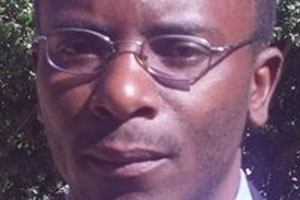
“If you are so smart, why aren’t you rich?” Shawn Cole & Gauri Kartini Shastry
SME’s Chat with Phillip Chichoni
When Simon received his “Ordinary Level” results in 2002, he knew he had no hope of pursing a higher education. Apart from his not-so-impressive results, his parents did not have the resources to send him to college. Being a young man who had grown up under tough conditions, Simon did not waste his energy crying over spilt milk.
He sold two chickens that his mother had given him and used the money to buy some fruit and vegetables. He would get up before dawn and go to Mbare market before the crowds arrived, so he could pick the best quality produce at low prices.
He first sold from a makeshift stall outside his house. In no time he had managed to build a tuck-shop, selling all sorts of household groceries that housewives needed for daily use. A frugal spender, Simon used his revenue to buy more goods for resale, while saving a fixed percentage of all the money he made.
In addition to supporting his mother and siblings, Simon managed to invest in his own assets. First he bought himself a bicycle, to which he attached a crate for carrying his goods from the wholesaler.
Two years later, Simon was riding a small Honda motor cycle. When I met Simon a few months ago, he was driving a one-tonne truck which he uses in his business. But he no longer operates a tuck-shop. Simon now owns five retail shops, a big house and two luxury cars.
Jack started working around the time Simon started his business. He changed jobs a lot, always looking for greener pastures. Each time he moved, he got a higher salary. After a few years he was living in a company-owned house and driving a company car.
- Chamisa under fire over US$120K donation
- Mavhunga puts DeMbare into Chibuku quarterfinals
- Pension funds bet on Cabora Bassa oilfields
- Councils defy govt fire tender directive
Keep Reading
The firm he worked for even paid for his children’s education, as well as his ACCA fees. The future seemed very bright for Jack. It looked bright indeed, that is until, as fate would have it, the company succumbed to the impossible economic conditions of the time and decided to downsize. Jack lost his job in 2008.
He thought he would use his retrenchment package to start a business but all his attempts were a failure. He lost all his money and went back to stay with his parents for a while. Eventually he moved to South Africa where he is now working in a not- so-pleasant job for a meagre salary.
Although unforeseen circumstances and bad luck may play a role in building or destroying people’s fortunes, it is evident that imprudent management of money plays a role in financial failure.
Resource management is an old discipline, which people have had to learn as long as there are limited resources in the world. Simple ants do it, putting aside food in the summer in preparation of winter or future droughts.
Financial literacy is the ability to understand how money works in the world: how someone manages to earn or make it, how to manage it, how to invest it to turn it into more and how to donate it to help others.
More specifically, it refers to the set of skills and knowledge that allows an individual to make informed and effective decisions with all of their financial resources.
At this month’s BusinessLink networking breakfast meeting on Thursday July 25, business consultants, success coaches and motivational speakers Sally and Brendan Palmer of Sabre Business World will talk in detail on this topic and how one can acquire the essential skills for making informed and effective financial decisions.
What happens when you are financially illiterate?
A survey carried out in several countries in the developed world discovered that the majority of the people did not understand the principle of compound interest.
As a result, many were not aware of their total obligations when they got into credit card debt, or bought houses on mortgage debt.
The financial crisis of the last decade caught many people unaware; they did not know the consequences of over-borrowing. Many people lost their homes after failing to keep up with monthly repayments.
Many business owners in Zimbabwe also had a rude awakening when they found their assets falling under the hammer after failing to pay back bank loans.
Others continue to compete on price alone, selling their goods at low margins without realising how that affected the sustainability and growth of their business.
Financial illiteracy leads to bad financial and business decisions, business failure, lack of growth and in the worst case scenario, loss of assets. It is your responsibility as an entrepreneur to learn, no matter what your age is.
There are many ways to acquire financial literacy: you can read relevant books, attend classes and workshops and read business publications and periodicals to stay up-to date with trends in business.
Please visit my website for full details. (http://smebusinesslink.com).
Phillip Chichoni is a business development consultant who works with SMEs and entrepreneurs.email: [email protected] website http://smebusinesslink.com.











